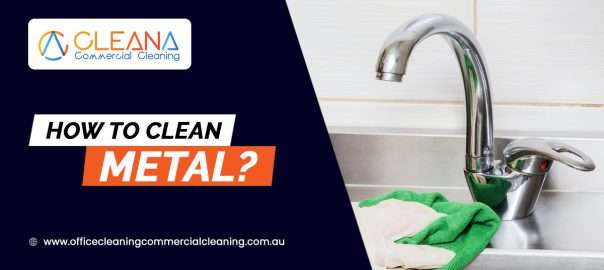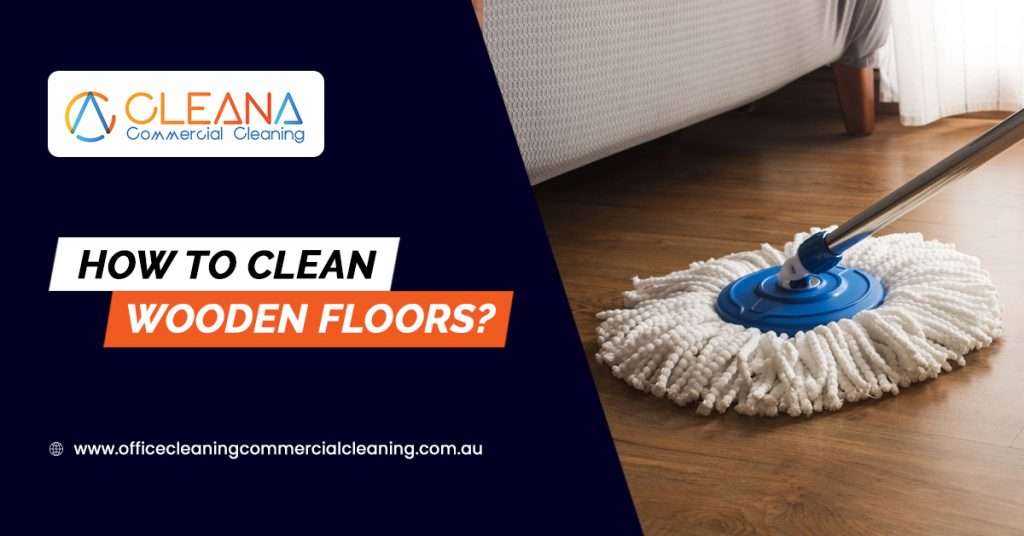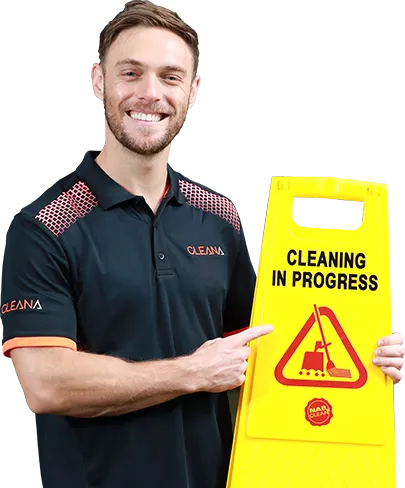When it comes to metal objects, they can be found everywhere inside the home. From furniture and jewelry to a bike and kitchen cookware, metal is a part of our day-to-day lives.
Anything made of metal can easily become tarnished and lose its vibrancy. This is because metal is a material that can withstand being ‘thrown’ about, making it very durable to be used for such objects as kitchen pans and cabinets.
Even so, not all metals are made the same with some able to be easily scratched or damaged.
This also means that cleaning metal can make a simple task difficult, especially if you are not sure what substances will be best to use on such material.
The last thing you want is to damage the metal. Fortunately for you, we, CLEANA commercial cleaning company have put together an easy-to-follow guide on how to clean metal from around the home. So, let us get to it.
When Should You Clean Metal?
Due to the fact that there are so many different types of metal used for various objects, there are no guidelines to follow when it comes to how often you should clean it. Usually, it all just comes down to common sense.
If the metal is food and drink related such as cookware, utensils, and water bottles, then the item should be washed every time it has been used.
If you notice rust on any of these items, or any metal object for that matter, then remove it immediately if you can. If you do not, then you risk it spreading to the rest of the metal.
Many of us have decorative metal items scattered throughout our home. These should generally be dusted at least once a week and polished whenever is suitable to do so.
Lastly, appliances in the kitchen and utility room need to be cleaned at the very least once a month to keep them in working order and looking spotless.
If you stick to these brief directions, then your metal items should stay looking in great shape without any real issues.
Test First
As we previously stated, not all metal is the same. This means that you might not know how the metal will react to a cleaning product. Because of this, it is always best to test on a small area first before cleaning the whole thing.
This way you can see if it reacts or not, and if it does, you can move on to something else. Just always make sure that the area is hidden away.
If what you are cleaning is highly valuable, whether for sentimental reasons or money, then it is generally advisable to leave the cleaning up to the experts.
Now, all that information is out of the way, let us get onto discussing how to clean various types of metal.
Metal Cutlery
Cleaning cutlery is quite straightforward, and even though it is likely to be something you are already doing, it is still worth mentioning.
The best way to clean cutlery is by using dish soap, whether in the sink or using an appliance like a dishwasher. So long as you use a sponge to scrub off any bacteria, then you are doing a great job.
Carry on doing so!
Silver And Silver Plated
This type of metal is very popular amongst those who wear jewellery. Unfortunately, when you do wear anything like metal, sweat and perfume are likely to find their way onto the jewellery quite easily. This means you will need to clean it.
Not only that, over time it has a tendency to oxidize which means it may discolour, and generally look dull. So, here is how to clean it properly:
- Put a layer of aluminium foil in a saucepan containing water, along with a tablespoon of each of bicarbonate of soda and salt.
- Bring this to a boil and then remove it from the heat.
- Add the silver into the saucepan and leave it for 2 minutes.
- Using a spoon or spatula, agitate the silver around the saucepan.
- If you start to see black flakes forming in the water, then this is a sign that the process has begun to work – so do not be alarmed!
- Once you think everything is clean, remove it from the water and polish the silver with a lint-free cloth whilst the item is still damp.
Gold
This type of metal needs to be cleaned with care, especially because it is normally used for certain types of items like wedding rings. It can scratch easily, so it is best to be extra gentle.
This means not using harsh and abrasive cleaning products, and instead opting for a dedicated cleaner that has been specifically constructed to be used on gold.
If this is not something that you have to handle, then there are other ways of cleaning gold. Here is a simple, yet effective way, to get the shine back into that gold item:
- Fill up a bowl using warm (not hot) water and add one or two drops of dish soap. Once mixed, add in the gold jewellery and let it soak for a few minutes.
- Once one or two minutes have passed, use a soft toothbrush to gently scrub the item. Be extra cautious to not press too hard.
- Once you have completed the step, rinse the gold under cold water and dry it thoroughly with a lint-free cloth.
Stainless Steel
This type of metal can be found throughout the home, especially in the kitchen and bathroom. Whilst it is extremely durable, it is also prone to scratching easily and to showing fingerprints.
Even so, it is actually really easy to clean. If it is kitchen appliances, then you should get into the habit of wiping stainless steel areas dry after every use.
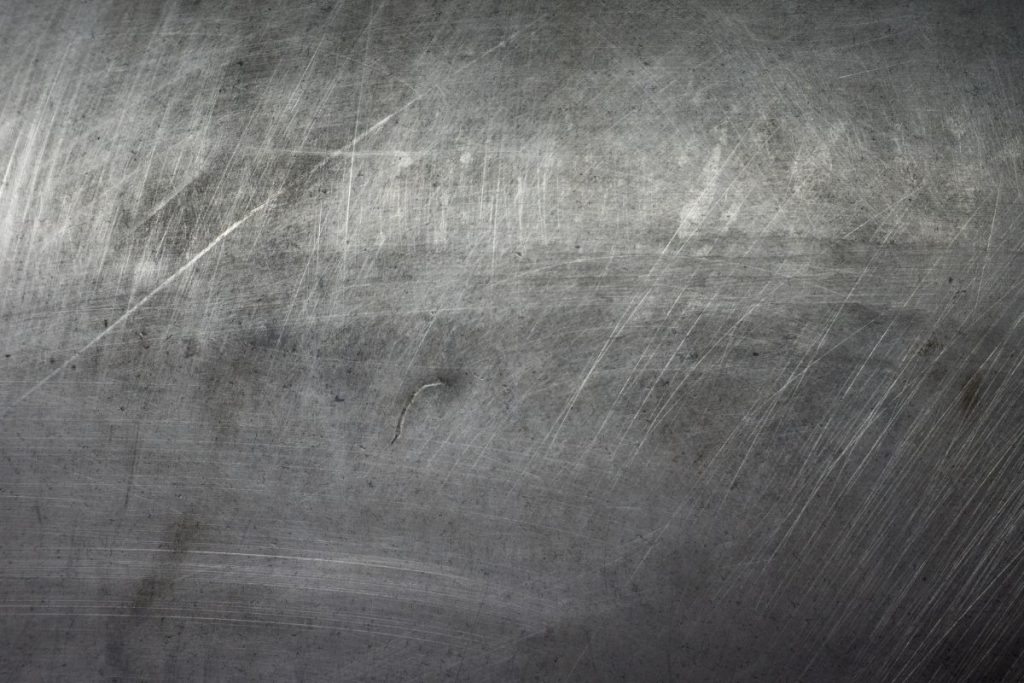
If you want a more thorough clean, then spritzing white vinegar onto the surface and wiping it away with a dry, lint-free cloth will do wonders.
For a really basic yet effective clean, wipe the surface with a fresh damp cloth. Once finished, use a lint-free cloth to dry it.
If you have stainless steel cookware and utensils, then this should be fine to go through the dishwasher.
Chrome
When it comes to chrome, can be treated in a similar manner to stainless steel. On both chrome and stainless steel, you can use a multipurpose cleaner, but warm water can do a good job of removing surface marks.
Because of the nature of these two types of metals, always do a test area first if you plan to use a chemical-based cleaner. Depending on the ingredients used, it may react to the metal and ruin its finish.
Aluminium
This is another super easy metal to clean. Whilst it will discolour easily, especially if submerged in water or something like a dishwasher, it can be cleaned using the soapy water and lint-free cloth method.
White vinegar is another alternative and can be used in the same way as cleaning stainless steel – spritzed onto the aluminium and wiped off.
Copper, Pewter And Brass
There are many commercial cleaners available when it comes to copper, and it can just be easier to use one of them. If you want to try something more natural, then apply some ground salt onto half a lemon and use this as a gentle scrub.
It will help to restore the natural shine, but you will need to rub it with a lint-free cloth afterwards.
You can treat pewter and brass the same way. All three of these metals can appear very dull over time, so finding a way to bring back the natural sheen will give the metal a new life again.
You can also use ketchup if you do not have a lemon to hand.
Removing Rust
If rust has become a bit of an issue, then there are ways to try and remove it. Unfortunately, rust can damage the metal anyway, but the faster you remove it, the better the chances are of it not ruining the surface.
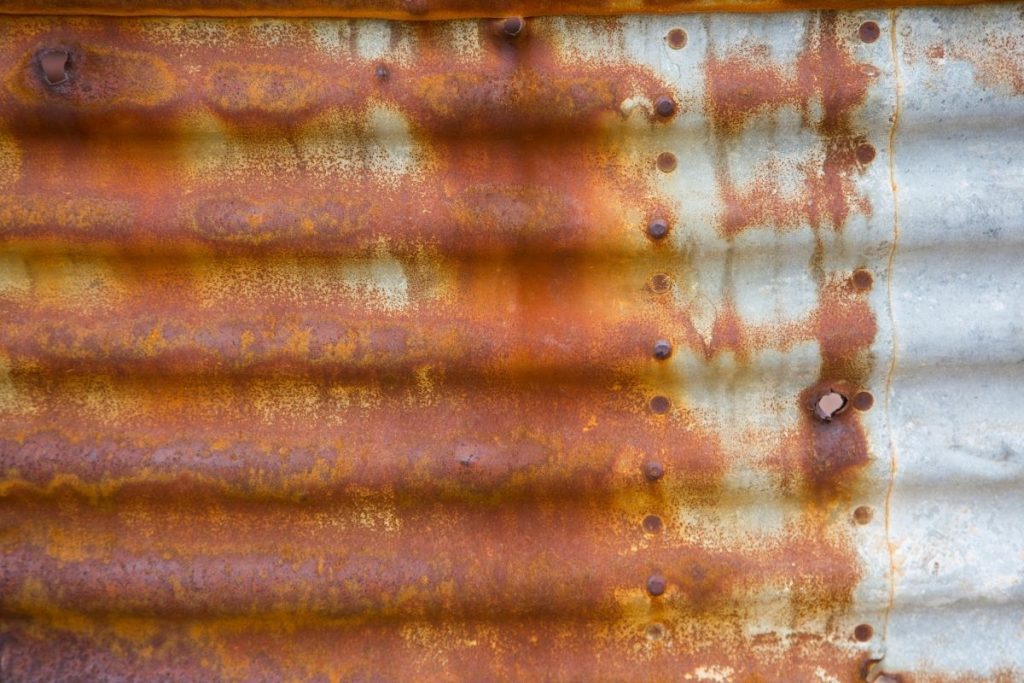
It is always worth trying to remove it anyway.
Lemon Juice
Lemon juice is an ingredient that can be used as a great cleaning hack in the home. Suitable to be used on all metals, avoid using the steel wool from this process on softer metals like aluminium due to it possibly scratching.
- Using your fingers, rub salt on the rust and then squeeze the lemon juice into it.
- Leave it alone for around two or three hours.
- Once the time is up, use something like steel wool to scrub at the surface of the lemon and salt. This should also remove the rust to reveal the metal underneath.
White Vinegar
Another store cupboard cleaning hack, white vinegar is known to naturally kill bacteria and can be used around the home.
- Soak a piece of paper towel in vinegar, and place it over the rusted area of metal. You will have to leave this for a full 24 hours.
- Once the time is up, remove the paper towels, rinse the metal with water, and then dry thoroughly.
Final Words
Cleaning metal is quite simple once you know how – the difficulty is finding out the methods to spruce up the different metals without damaging them.
Whilst some can discolour and others just lose their shine, cleaning metal can bring new life into the item, especially if it is jewellery.
It is always best to stay away from chemical cleaners if you can, but no matter what you decide to do – natural or not – the options are available to you.
